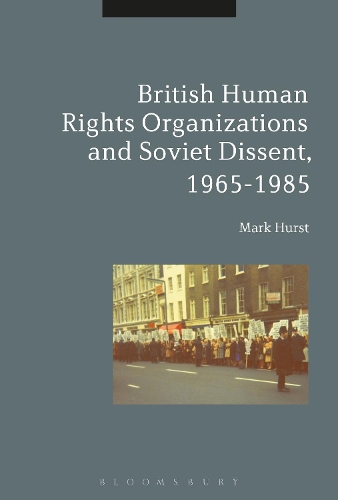
British Human Rights Organizations and Soviet Dissent, 1965-1985
(Paperback)
Available Formats
Publishing Details
British Human Rights Organizations and Soviet Dissent, 1965-1985
By (Author) Mark Hurst
Bloomsbury Publishing PLC
Bloomsbury Academic
30th November 2017
United Kingdom
Classifications
Tertiary Education
Non Fiction
European history
Human rights, civil rights
323.094709045
Physical Properties
Paperback
264
367g
Description
In the latter half of the 20th century, a number of dissidents engaged in a series of campaigns against the Soviet authorities and as a result were subjected to an array of cruel and violent punishments. A collection of like-minded activists in Britain campaigned on their behalf, and formed a variety of organizations to publicise their plight. British Human Rights Organizations and Soviet Dissent, 1965-1985 examines the efforts of these activists, exploring how influential their activism was in shaping the wider public awareness of Soviet human rights violations in the context of the Cold War. Mark Hurst explores the British response to Soviet human rights violation, drawing on extensive archival work and interviews with key individuals from the period. This book examines the network of human rights activists in Britain, and demonstrates that in order to be fully understood, the Soviet dissident movement needs to be considered in an international context.
Reviews
Hurst succeeds in providing valuable insights on the dedicatedand often deeply personalengagement by the British actors. In addition, this work certainly contributes to the research on human rights NGOs and social movements in a British context and would indeed be useful for informing comparative work in other national settings. * American Historical Review *
It is within Hursts very cogent narrative that the reader will discover excellent opportunities to draw distinctions between the work of international human rights organizations working against authoritarian states, both historical and contemporary. * Human Rights Quarterly *
The copious notes and bibliography serve as a testimony to the painstaking work that makes this volume not merely an academic reference, but an engrossing read in its own right, bringing life to the names of both the Western human rights activists involved and the prisoners and persecuted whom they defended. It is essential reading for historians, politicians and anyone with an interest in Russia past and present. * Journal of Ecclesiastical History *
Human rights activists may not have ended the Cold War by themselves, but thanks to works like Hursts, it is increasingly difficult to imagine the Cold War ending without them. * European History Quarterly *
Author Bio
Mark Hurst is Lecturer in History at Lancaster University, UK.
